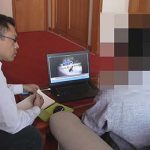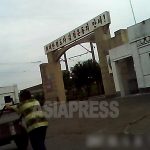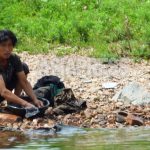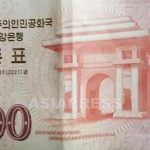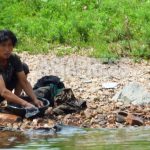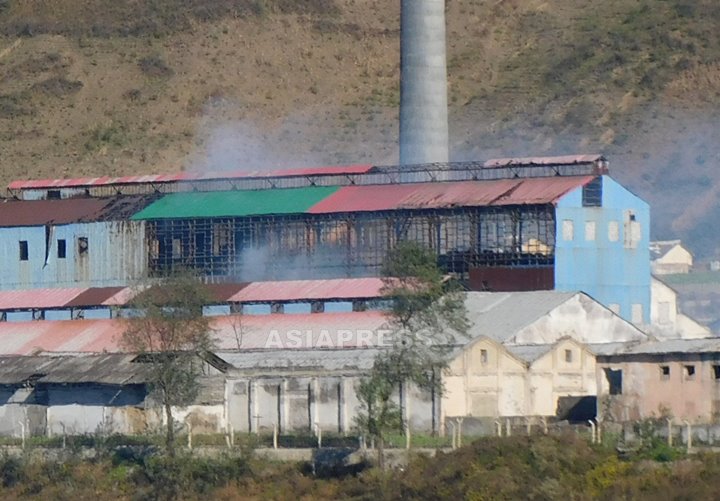
North Korea's financial woes have worsened, with state agencies and state-run companies running out of cash and unable to pay for goods or salaries. With the inability to print banknotes, the government is trying to replace them by issuing money coupons referred to as “Tonpyo”, but there is massive confusion. (Kang Ji-won / ISHIMARU Jiro ).
◆ Government Issuing temporary money coupons as a desperate measure
"It seems that our country is finally running out of cash."
This information was reported frequently and from all over North Korea starting around the end of August. These reports said that the cash flow of government and party agencies, state-owned enterprises, and factories have deteriorated to the point where payments are overdue, and banks are no longer accepting cash payments or remittances.
In response to the financial difficulties, the Kim Jong-un regime introduced temporary money coupons (Tonpyo) from the Central Bank of the Democratic People’s Republic of Korea with a face value of 5,000 won. In early September, South Korean media obtained a photo of the "Tonpyo" and reported on it.
※5,000 won is about 1.09 USD at the prevailing exchange rate on October 21.
Many Korean experts analysed the sudden issuance of the "Tonpyo" as a way of absorbing foreign currency from the market. This is because, in the past, money coupons have been issued exclusively for the exchange of foreign currencies. There was also speculation that the "Tonpyo" was issued to support impoverished people.
However, as we conducted our research in North Korea, we discovered that, in reality, the issue was more about rescuing cash-strapped state institutions, state-owned enterprises, factories, and banks. Mr A, a reporting partner who lives in the northern region, explained as follows.
"Although rumours began to spread in mid-September that 'Tonpyo' was circulating in and around Pyongyang, I didn't see it in person until early October. Then, as companies and factories began to make payments and settlements using "Tonpyo," it appeared in the market. However, merchants are wary and try not to accept them. Even though the government says, it is the same as regular money, who would believe that? We've been fooled too many times before. I'd rather barter."
Another reporting partner, Mr B, who lives in another city, commented as follows.
"There are no instructions to exchange your foreign currency for Tonpyo, and no one is going to exchange foreign currency for Tonpyo when they might lose it. There is also no mention of giving money to 'desperate households' (households that have run out of food and money)."
We asked two other reporting partners to look into the issue, and they assured us that the "Tonpyo" has no function in foreign currency exchange and that there is no evidence that it was given to the poor.
So why did Kim Jong-un's regime issue the temporary "Tonpyo" instead of supplying currency? "An official explained to me that paper and ink were no longer coming in from China, so they were temporarily printing with domestic products," said Mr A, our reporting partner.
"I wonder how much money the country has if it can't even import paper and ink for banknotes. The authorities claim that 'Tonpyo' is 100% domestically produced, but the quality is poor, and it looks like ordinary paper," said another reporting partner, Mr C.
Foreign currency difficulties have made imports from China difficult, and it is believed that paper and ink for printing banknotes have dried up.
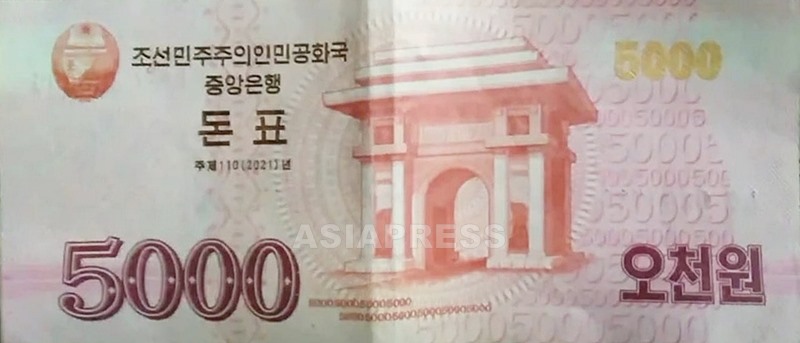
◆Enterprises in a slump
The leading cause of the state-owned enterprises’ slump is the significant drop in trade due to the blockade of the border with China in response to the coronavirus. Companies that had depended on China for raw materials saw their operations decline or suspended. Exports to China, mainly of consignment-processed products and minerals, have also come to a near halt.
In addition, due to excessive anti-corruption measures, the movement of people and distribution of goods within the country have been strongly restricted. Hence, people have had less cash income and less purchasing power. The functioning of the market has shrunk drastically due to the inability to produce and sell goods. And the distribution of goods among businesses is sluggish, with settlements not being made properly.
Our reporting partner explained the current situation as follows.
“Exports to China have stopped, and much of the business-to-business trade has disappeared. The only factories that can operate, even at a snail's pace, are those that sell their products to merchants in the domestic markets. They must buy what they need for production in cash at the market. But neither the companies nor the government has money. I think that's why they printed 'Tonpyo'." (Mr A)
"I talked to the accountants of some companies, such as steel mills, and they said that they have been using banks to handle accounting transactions, but they can no longer send money because they don't have enough money in the bank." (Mr C)
"The existing won bills are circulating among individuals. Since people don't trust the state-run financial institutions, the money is only going to the 'Dongju' (emerging wealthy elite), and the banks are not functioning." (Mr B)
◆Growing Distrust of the "Tonpyo"
The city has already begun to consider "Tonpyo" as a cheap imitation of money and avoid using it. Mr B described the current situation as follows:
"People laugh at 'Tonpyo,' so there are money changers who buy 5,000 won tickets at a discount of 3,800 won or 4,000 won in cash. They bring it to companies and institutions that still have cash and use their connections to exchange it for cash and make a profit. Since the release of 'Tonpyo' and the realization that there is no money in the country, more and more people think that they must hold on to RMB or US dollars at all costs."
The authorities appeared to have panicked and started flirting with the idea of punishing those who turn ‘Tonpyo’ for profit. According to Mr A, an official who came to a people's group meeting made the following announcement.
"Although the 'Tonpyo' is being issued temporarily due to the current difficulties, it is guaranteed by the government to have the same value as cash. When the COVID-19 pandemic is over, the borders will be opened, and money production will be normalized, so the 'Tonpyo' will be collected. Those who spread rumours that it is of poor quality or that it will be turned into scrap paper in the future, or those who exchange it at a discount, will be caught and punished."
There is no doubt that the Kim Jong-un regime's finances are deteriorating to the point that it is having trouble issuing currency. Moreover, the side effects of the excessive coronavirus measures are intensely apparent.
In addition to the information contained in this report, ASIAPRESS has obtained a document covering the use of ‘Tonpyo’ issued by the Workers' Party in October which is designated "top secret.” ASIAPRESS will report on the details of this document shortly.
※ASIAPRESS contacts its reporting partners in North Korea through smuggled Chinese mobile phones.
- Kim Jong-un Loses of Weight… But North Korean People Are Indifferent (2021-10-18)
- <Inside N. Korea> “You Must Shoot Anyone Stealing the Harvest": Live Ammunition Distributed at Cooperative Farms For 24/7 Guard (2021-10-15)
- <Inside N. Korea>Robberies, Violent Crime on the Rise: Discharged Soldiers Suspected of Impersonating Police to Mug Citizens (2021-10-11)
- <Inside N. Korea> Major Factory Shuts Down as Workers Leave Following 6 Months of Unpaid Labor (2021-10-11)
- <Latest Photo Report> Scenes of North Korea Captured by Super Telephoto Lens (1) Residents Replaced by Border Guards Along the Riverside [ISHIMARU Jiro] (2021-08-10)
![[Video Report] 'Doegurikun' the urban poor who delivers grains from farms to market](https://www.asiapress.org/rimjin-gang/wp-content/uploads/2018/07/20120524_daegeri_01-150x150.jpg)
